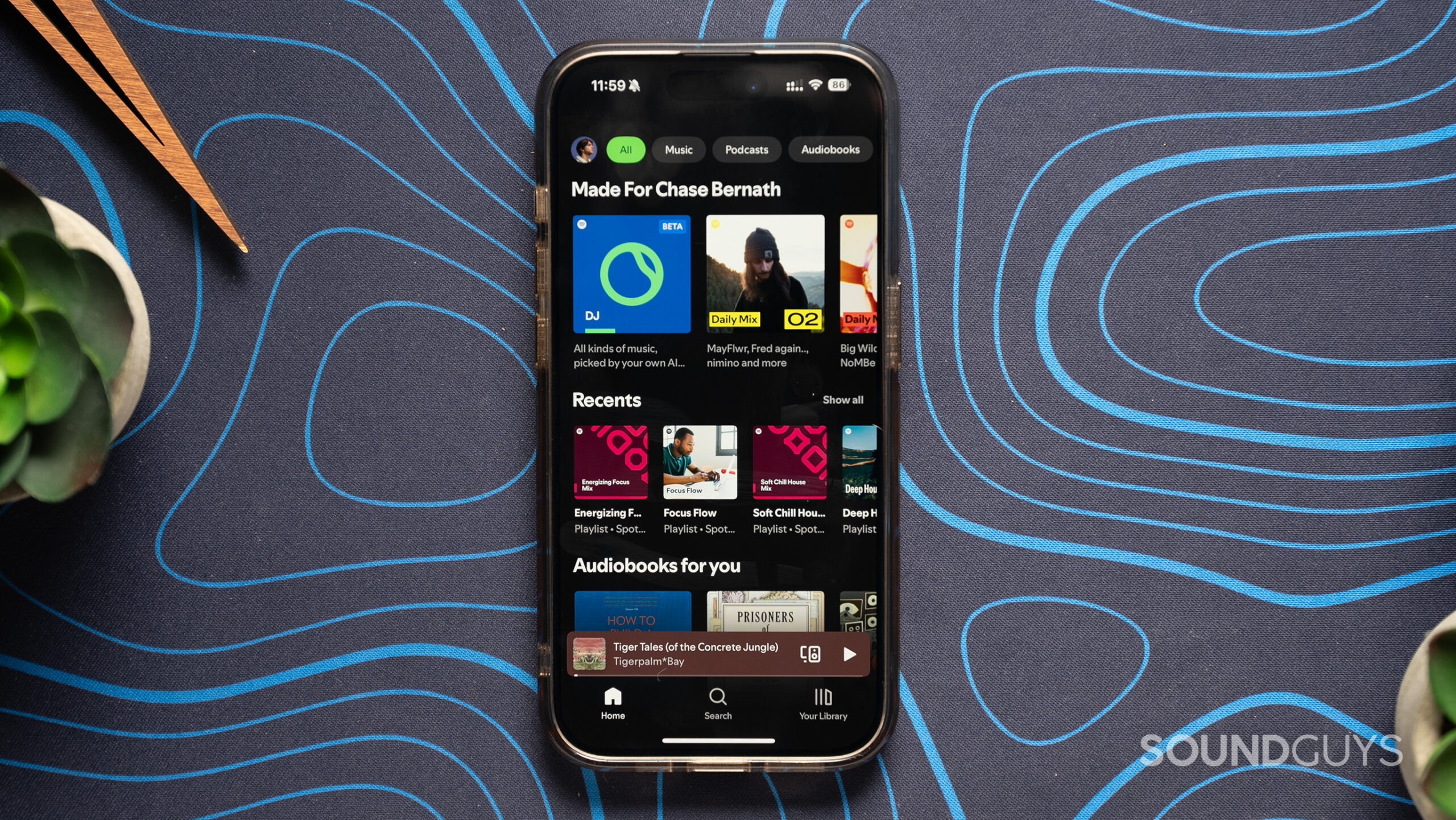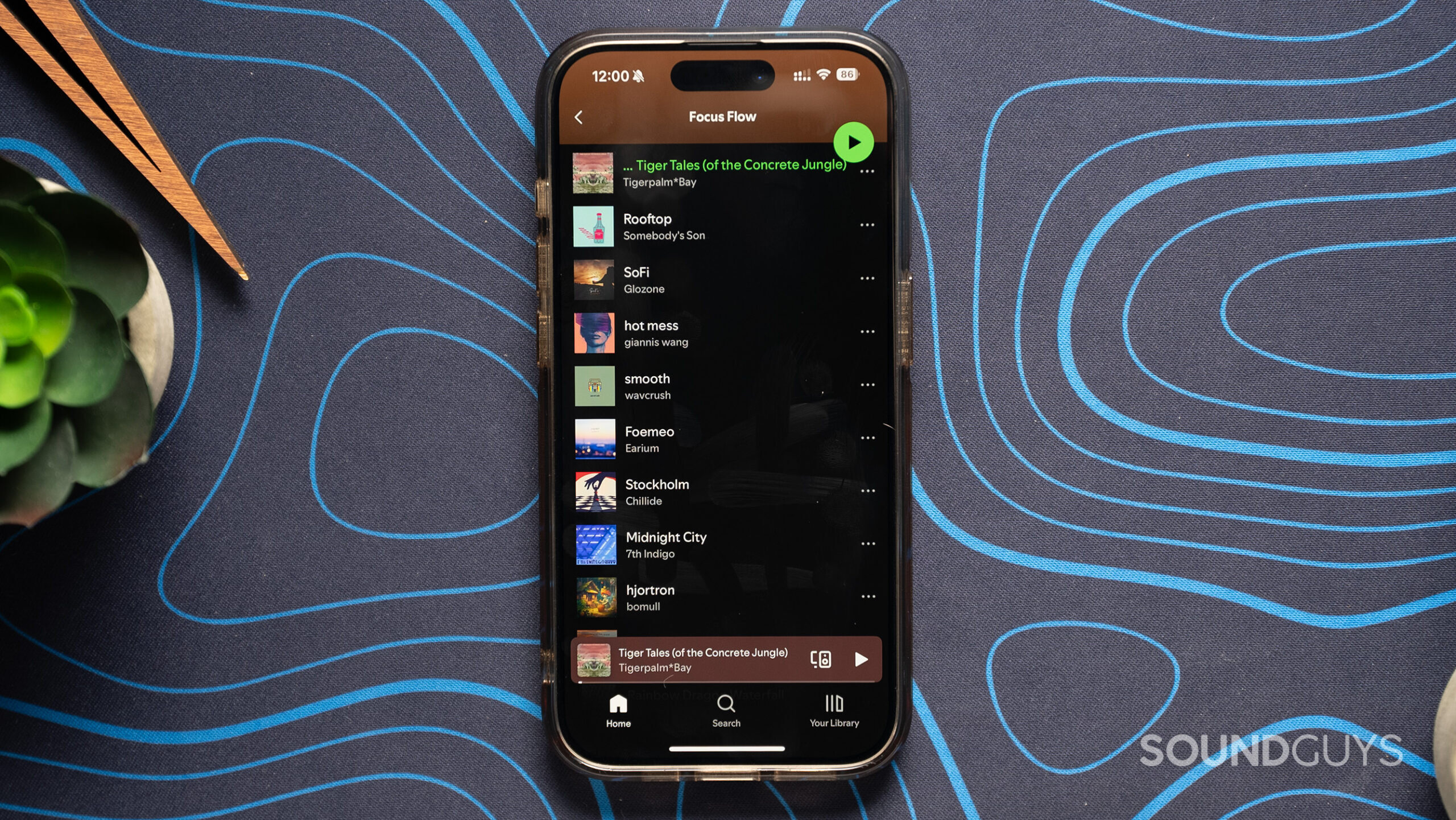All products featured are independently chosen by us. However, SoundGuys may receive a commission on orders placed through its retail links. See our ethics statement.
How Spotify's algorithm is destroying the music industry
Published onApril 8, 2025

Out of all the music you listened to in the past week, how many of the artists and song titles can you name? I’d love to give credit to the artists who have decorated my time over the past week with their music, but thanks to the way Spotify shows me music, I can’t. While music discovery used to be a social event, now most of us cower to simply accepting whatever the Spotify algorithm feeds us. While there is convenience in turning off our brains and mindlessly listening to an AI-generated lo-fi beats playlist, there are real world negative consequences for both the artists and listeners.
Removing the human element from music discovery
Every generation has experienced music discovery in a different way, but all involved a social interaction. Whether it was digging through record crates with friends or scrolling through curated music blogs, discovering music meant being part of a community. Maybe a friend made you a mixtape, or you stumbled onto a song during a late-night college radio session. The music felt tied to a moment, a person, or a story. But algorithmic recommendations—though convenient—feel cold by comparison.
Whether it’s Discover Weekly, Release Radar, Daily Mixes, or AI-generated playlists, Spotify has a lot of tools designed to feed you the exact music that you want to hear. The app learns from your listening habits, and feeds you more of the same. While it might feel like you are “discovering” music, in reality, you are boxed in. The same genres, the same time periods, the same artists. You get placed in a niche of music that ensures you keep engaging with the app, but with limited exposure to new experiences.
Algorithms are also impacting the music itself
It’s not just how we find music that’s changing. The way artists create music is also evolving to suit the algorithms. Tracks are getting shorter—sometimes barely hitting the two-minute mark. Choruses often arrive within the first 15 seconds. Why? Because platforms like Spotify track listener behavior in those first few seconds, and artists don’t want their songs skipped. When Old Town Road dominated the world of streaming in 2019, record labels took notice. A short track with a catchy chorus right at the beginning is an easy way to hack the engagement metrics of the algorithm. The average length of a Billboard track dropped from over 4 minutes in the early 2000s to merely 3 minutes and 7 seconds in 2021. There is now real pressure on artists to play into the algorithm rather than tell a proper story through their music.
Ignorance is bliss

Many algorithmic playlists on Spotify are filled with unknown artists who will never see recognition for their work. Spotify can feed you a perfect playlist, and you can enjoy said playlist, without reading the names of any of the artists or the tracks that you are listening to. This is by design. With a focus moving away from artists and towards playlists and algorithms, Spotify is priming its users to accept AI-generated music. If you don’t know who the artists are in that lo-fi beats playlist you listen to everyday, you won’t notice when Spotify starts swapping out human artists for AI-generated tracks. Since Spotify operates on a revenue-sharing model with its artists, using AI music means they get to keep more of their profits rather than having to pay out royalties to artists.
Take action against the algorithms
I’m not going to tell you to delete Spotify or avoid listening to your Discover Weekly. There’s a convenience to these features that can lower the barrier to entry to listening to good music. But if you miss that feeling of really discovering something new, try mixing in some human-curated elements again. Ask a friend what they’ve been listening to lately, take a stroll to your local record shop, or attend some live music events. At the very least, try to spend some time each week listening to music with intention. Take notice of the artists that appear in your playlists, and dive into their albums or see if they are on tour in your area soon. Shout out your favorite artists on social media. The only way we can prevent AI from garbling up the entire music industry is if we keep it alive through real human connection.
Algorithms can be helpful, sure—but when they take over the whole experience, we lose more than just the thrill of the hunt. We lose the humanity behind the music.